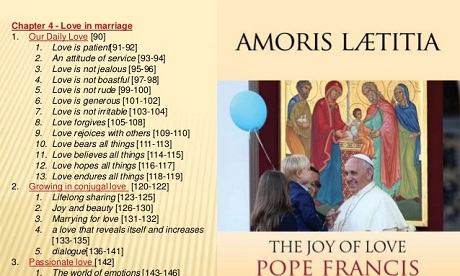In what he calls a “final plea”, Cardinal Raymond Burke has again gone public.
He wants Pope Francis to clarify his apostolic exhortation, Amoris Laetitia.
Burke was one of four cardinals who wrote to Francis last year questioning aspects of Amoris Laetitia.
The questions, called dubia, led to the four cardinals being called “the dubia cardinals”.
Two of the four have since died.
Burke says he wants to let Francis know how urgent it is that he answer the dubia.
He said “… in exercising the ministry he has received from the Lord, the Pope should confirm … the teaching regarding both Christian morality and the meaning of the Church’s sacramental practice.”
Francis has not yet responded to the original five-question dubia.
One of the questions concerns Church teaching which forbids holy communion to civilly remarried divorcees who are engaging in sexual relations.
Some bishops conferences are saying these Catholics can now receive communion.
Others say they can’t.
Burke says confusion has led some to propose a “paradigm shift” regarding the Church’s entire moral practice.
In his view, the result is “subversive of essential parts of the Tradition.”
He says he (and others) need to know “precisely what the Pope wanted to teach as Successor of Peter.”
Concerning Christian morality, he says “some claim that absolute moral norms need to be relativised” and that a “subjective, self-referential conscience” needs primacy in moral matters.
He also says the Pope’s letter to the Argentine bishops containing comments on the bishops’ pastoral guidelines “could not be considered an adequate response to the questions posed”.
The questions concerned the acceptability of their guidelines that left open the possibility of some sexually active unmarried couples receiving Communion.
“On the one hand, these guidelines can be interpreted in different ways; on the other, it is not clear that this letter [Francis’s response] is a magisterial text in which the Pope intended to speak to the universal Church as the Successor of Peter.
“Far from diminishing the importance of our questions,” he says the current situation only makes them “still more pressing.”
Source
